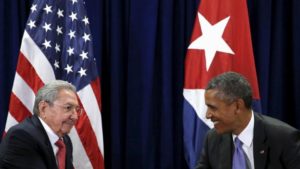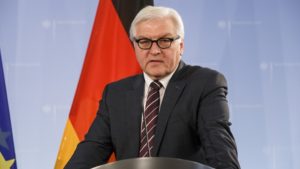The “Post Truth Society” o la gran era de las noticias falsas en el Perú
¿Te molestan algunas cosas que lees en internet?, ¿Si colman tu paciencia o te indignan, eres de los que las comparte y difunde en las redes sociales?, ¿odias a Castañeda Lossio, crees que Susana Villarán era una vaga, que Keiko es ociosa o PPK un lobista?, ¿Confirmas la fuente de lo que compartes?, ¿Confías ciegamente en internet?, ¿Sabías que tal vez podrias estar formando parte de una campaña de desinformación con esos sharing que haces a cada momento sobre algún tema determinado?
El ser humano es emotivo por naturaleza y puede reaccionar ante ciertos estímulos de una manera apasionada lo cual es aprovechado por expertos en comunicación para contraargumentar a sus opositores de turno (religiosos, políticos, ideológicos, culturales, etc) manipulando y evolucionando ideas que son compartidas en una comunidad determinada para generar una gran división que es el signo de lo que ultimamente se conoce como “Post Truth Era” o era del declive de la confianza en las instituciones o simplemente la era de las “Fake News” (noticias falsas).
La pérdida de credibilidad de muchas instituciones se da debido al actual estado de la tecnología e información, hoy todo es transparente y, sin embargo, se manipula la verdad para servir a la voluntad de cualquier ente opositor con la finalidad de difundir noticias falsas y lograr cohesión y polarizar una sociedad. Esta técnica es, ciertamente, lo mas bajo y vil que puede existir para lograr la popularidad de un concepto (idea, negocio o servicio) en el Internet. La búsqueda de atención y popularidad utilizando información manipulada y falsa es lo mas común que existe actualmente desde que se utiliza el sensacionalismo, el amarillismo o el escándalo para vender o hacer mas popular una idea. Lo malo de esta situación es que mantiene en la ignorancia a una comunidad bajo un velo de supuesta verdad.
El siguiente video nos muestra el punto de vista de este youtuber y que bien puede ser aplicado a la política peruana, a los ataques que vemos en las campañas políticas, la leyenda de los pishtacos en Huaycán, al actual debate de #conmishijosnotemetas y la denominada “ideología de género” entre grupos religiosos y el gobierno, el reconocimiento de la unión civil homosexual en el país, y hasta el asunto de los escándalos armados y que son transmitidos por los mas “reputados” medios de comunicación a través de sus infames “Reality Shows”.
Vivimos ahora en una sociedad donde todo ha perdido credibilidad gracias a la popularidad de los “Likes”, donde muchas personas ni se molestan en revisar la veracidad de lo que comparten o asumen ciegamente que todo lo que esta en internet es cierto. Esta situación nos llevará inexorablemente a la ignorancia y la división como sociedad en el futuro y todo ello con una finalidad: Controlarte a través de una ilusión.
En el siguiente video “Cómo Detectar a un Mentiroso”, Pamela Meyer nos cuenta en resumen que “la mentira es un acto cooperativo”, “la mentira es el intento por llenar un vacío y mostrar nuestros deseos” y que “las mentiras tienen un alto costo económico tanto a corto como a largo plazo”. Por último, la transparencia y el “oversharing” que vivimos actualmente puede, de hecho, cegarnos frente a la verdad de los hechos y llevarnos a perder confianza y credibilidad en las instituciones y sus “autoridades”.
Por ultimo, tenemos la opinion de Francis Fukuyama, quien menciona que al referirnos al concepto de “Post Truth Society” estamos frente a una situacion en la cual es posible afirmar cosas sin tener una base factica y, sin verguenza alguna, no hacemos diferencia entre una afirmacion verdadera o una falsa. Independientemente de su naturaleza, la gente seguira creyendo en ella. Asimismo, señala que esta situacion es el reflejo de algo profundo: La perdida de credibilidad de las autoridades e instituciones producto del estado de la tecnologia, disponibilidad de informacion y transparencia.


